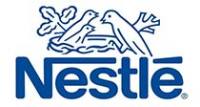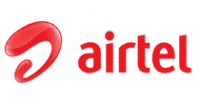
+1 518 302 6818
kyle.hallner@getctn.com

+44 7723 465323
murat.aydin@getctn.com

+1 518 302 6818
kyle.hallner@getctn.com

+971 4230 6314
li.wei@getctn.com

+31 970 1025 5535
sofia.ricci@getctn.com

+31 970 1025 5535
emilie.dubois@getctn.com

+31 970 1025 5535
lukas.muller@getctn.com

+44 7723 465323
carlos.hernandez@getctn.com

+44 7723 465323
olivia.brown@getctn.com

+31 970 1025 5535
emma.peeters@getctn.com

+971 4230 6314
takahashi.hiroshi@getctn.com

+31 970 1025 5535
anna.devries@getctn.com

+91 99877 27960
alamgir.binansar@getctn.com

+971 4230 6314
sara.almulla@getctn.com

+44 7723 465323
mikko.makela@getctn.com

+44 7723 465323
liam.murphy@getctn.com

+44 7723 465323
lerato.molefe@getctn.com

+44 7723 465323
kurt.schmidt@getctn.com

+44 7723 465323
cheng.wei.lim@getctn.com

+20 109 400 1060
ahmed.morsi@getctn.com

+44 7723 465323
emeka.nwosu@getctn.com

+44 7723 465323
minjae.choi@getctn.com

+44 7723 465323
rocky.bujjaman@getctn.com

+44 7723 465323
khan.malik@getctn.com

+44 7723 465323
nicholas.rocky@getctn.com

+44 7723 465323
chloe.thompson@getctn.com

+44 7723 465323
erik.dener@getctn.com

+966 566050151
fahd.elkhaldy@getctn.com
What is Central African Republic ECTN?
Central African Republic ECTN is a mandatory loading document for all shipments to the Central African Republic. It is also known as BSC. It was determined as a regulation in 2000 by the Bangui Customs Officials. Failing to present the ECTN document will lead to severe consequences and a hefty fine.



























Procedure
According to this law, every cargo purchased from abroad and transported for commercial, business, in some cases, diplomatic and personal purposes requires a Loading Certificate called CTN.
The shipper, exporter, or freight forwarder is responsible for acquiring the CTN waiver certificate from the authorized representative.
- Bill of Lading – A draft copy can be used for the draft.
- Commercial Invoice
- Freight Invoice – It is necessary if the freight cost isn’t on the commercial invoice.
- Export Customs Declaration – Details have to be the same across all documents if it is not cross-trade.

- Shipments that arrive without ECTN or with false information on the ECTN get charged twice the certificate cost plus the regulation charge determined by the Central African Republic National Port Officials.
- According to the Central African Republic Customs regulations, all cargo to the Central African Republic must be accompanied by an ECTN certificate.
- The ECTN certificate must be validated five days before the vessel arrives at the latest.
FAQs related to the Central African Republic ECTN Certificate
No, ECTN is unique and reserved only for one shipment. Every shipment must have a validated ECTN number.
No. All the parties on the Bill of Lading will be the same on the ECTN certificate. If you want to hide the supplier name on the certificate for a transit shipment you will need to arrange a switch BL.
No. CAR ECTN number doesn’t have to be mentioned on the Bill of Lading.
General FAQs
GetCTN is an independent consulting firm that helps clients obtain CTN certificates in many African countries. It is an international company with offices in the USA, UK, and UAE, and its sole business is CTN certification; it is not a freight forwarder, importer, or exporter.
The hard copy of the certificate isn’t necessary at all. Instead, the whole process is completed online.
A bill of lading (BL or BoL) is a legal document issued by a carrier to a shipper that details the type, quantity, and destination of the goods being carried.
A commercial invoice is a required document for the export and import clearance process. It is sometimes used for foreign exchange purposes. In the buyer’s country, it is the document their customs officials use to assess import duties and taxes.








